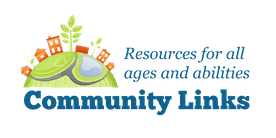There are many milestone transition periods in a lifetime. Right now, we are going to focus on the transition to adulthood.
Typically, moving on to adulthood includes post-secondary education. This also involves joining the workforce or vocational training. For individuals with disabilities, this process covers much more and may be full of uncertainty. It is important to know the timeline of this transition. We hope this page helps you in making well-informed decisions for your loved one’s future. To start, check out the header of this page. Read on for more resources below, especially in the Additional Transition Resources section.
Keep in mind that there are several other topics to consider when someone with a disability turns 18. By law, many things change at this age, so check out our auxiliary page titled “Other Transition Planning” for information on things like guardianship, estate planning, and Social Security benefits.
Center for Parent Information & Resources
As a starting point, check out the Transition to Adulthood page from the Center for Parent Information & Resources. This can help you prepare for what this transition period looks like. It also has questions that parents/ caregivers frequently ask. Insights about post-graduate opportunities are also available.
National Technical Assistance Center on Transition (NTACT)
For a more detailed look at some transition resources, look at the NTACT:C site. This has a useful timeline of the transition period. NTACT:C also has a few steps you can take to plan for your loved one’s post-graduation success.
Assessment
Students with autism can plan on taking the Community-based Skills Assessment (CSA). This can be taken as early 12 years old. The CSA helps families determine the skills their loved one with autism possess. In turn, it helps them figure out a plan and set appropriate goals for them. This is an important transition tool for them to plan for a successful future. Information about the assessment can be found here.
Wrightslaw
Wrightslaw pertains to the special education law. This is a helpful guide about your rights related to special education. It can be difficult to navigate or interpret these laws for your loved one, so Wrightslaw helps you to gain a better understanding of how special education works. With more knowledge of the laws, you can help your child to get an appropriate education. Wrightslaw has Transition to Work and College areas that are helpful for this process.
Additional Transition Resources
- A Transition Guide to Postsecondary Education & Employment for Students and Youth with Disabilities
- Customized Employment
- Entitlement-vs-Eligibility (IDEA, ADA, and Section 504)
- Exploring the Option of a Two or Four Year College
- Financial Fundamentals – Discussion Starters
- Job Skills – Getting Ready For Work
- Post Secondary Education Expectations
- Preparing for Employment
- Promoting Independent Living While Still in School
- The Importance of Employment – Why Work?
- Transition to Post-secondary Education
- Understanding Self Advocacy


